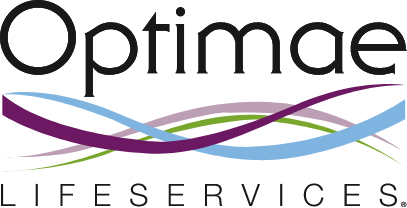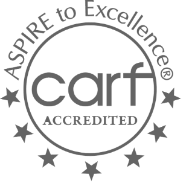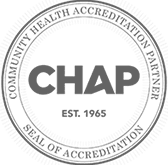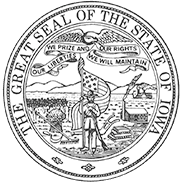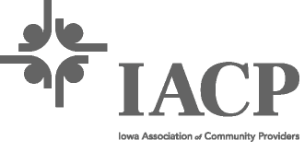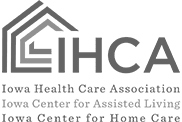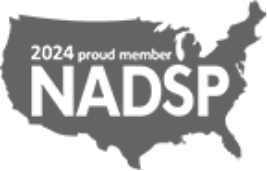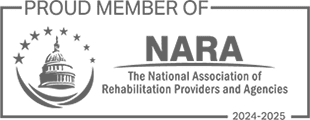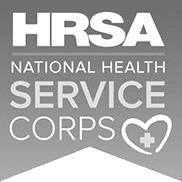Often, when one dreams of retirement, thoughts of sandy beaches, time with the grandkids or travel come to mind. For Helen Raymond, her retirement met an unexpected chapter.
After working as a physical therapist for many years, specializing in care for children — an occupation that brought her joy and fulfillment — Helen realized she needed to focus on her mental health.
“When I was in Ohio, my mental health went into a slide,” Helen says. “I was unable to work, so I had to retire somewhere, and I chose Fairfield because I have family there.”
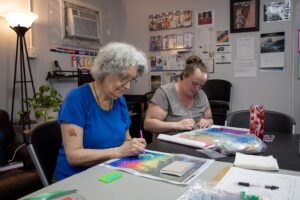
In Fairfield, Helen discovered Optimae Behavioral Health Services, as it was local, and a couple of people recommended it to her. At Optimae, Helen connected with a counselor, who later recommended Optimae’s Recovery & Resource Center.
“I went right into a creativity and wellness class,” Helen says. “We did lots of arts and crafts, and kind of explored our creative selves.”
Through the creativity and wellness class, Helen came to find what research bears out: creative expression has a positive impact on mental health, including boosting social connectedness.1
Fully accepted
A sense of social connectedness has been at the center of Helen’s Recovery & Resource Center experience.
“The Recovery Center is very unique,” Helen says. “I’ve really enjoyed all the classes and get-togethers and things we’ve done together — it’s a great place where I’ve been fully accepted as myself, and that includes my mental health and the challenges I go through.”
Helen’s description of her Recovery & Resource Center family is a stark contrast to her initial time in Fairfield.
“When I first moved here, I isolated myself a lot, and that is not good for me,” Helen says. “I really feel socialization and me being a part and choosing a situation like the Recovery Center, where I can socialize and be with people often, is another step towards my balancing my mental health.”

In addition to participating in classes, lunches and other activities like diamond art projects where Helen is the recipient of what the Recovery & Resource Center has to offer, she also volunteers. With her background in physical therapy and pediatrics, Helen was asked if she’d like to assist with kids’ groups. She completed the application, submitted to a background check and was on her way.
“I wanted to go through the official way, not just saying I’m volunteering, but actually be qualified,” Helen says. “That was a blast. We had so much fun. I’m so glad I did it.”
Today, Helen helps lead some of the center’s classes and serves as a member of Optimae Behavioral Health Services’ advisory board, a group made up of customers and community partners who provide feedback and guidance for program enhancement.
“It’s been a very good thing for me,” Helen says. “It’s really increased my confidence because we do a big Zoom call with all the other Optimae offices in the southeast region.”
On the calls, Helen has had opportunities to share her perspective, but also hear the perspectives and experiences of others. Through that process, she’s learned that while each mental health journey is unique and each individual faces unique challenges, coming together helps the board members form a special bond.
“I’ve learned some things about some of the other challenges that people with mental health issues like myself have across the area, and that’s been really great,” Helen says. “I feel like I’m part of something bigger than myself, and I’m being asked to give my opinion on certain things — so I’ve really enjoyed it.”
Life-giving lessons
As Helen reflects on the last nine years of her journey, she can see how far she’s come.
“I had so many mental health challenges, I had to retire early — I didn’t really want to,” she says. “I’d say nowadays, I’m more balanced. I know more about what makes my life tick. I know when my mental health is out of balance and when it’s not. And I’ve continued in counseling, which has been wonderful for me.”
As she’s learned these lessons, she’s been better able to share the lessons with others.
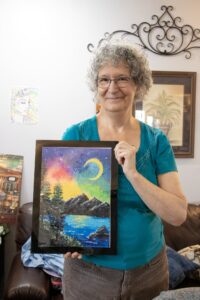
Lesson one: manage your medications.
“For mental health care, there are a lot of pieces and parts that have to be happening,” Helen says. “One piece is to find a really good psychiatrist who can help you with your medicine, the dosing — you know, explore alternatives.”
Lesson two: find a good counselor.
“The next step would be that you find a good counselor,” Helen says. “If you’re someone with mental illness, you’re going to need help getting through that place. When I’m with my counselor, I bounce ideas off of her and see if she agrees or has another insight or another way that I could look at things.”
Lesson three: identify your triggers.
“There are times when you’re triggered, when your depression, anxiety and general diagnosis is going to be triggered,” Helen says. “I try to figure out what’s going on with me.”
Armed with these insights, Helen continues on her journey forward. Walking that path, she knows it’s a continual process — one step, and one day, at a time.
“Since I started [at Optimae], I’ve learned a tremendous amount about self-care and how important that is,” Helen says. “I am much more in touch with things. It’s a process, you know. I’m doing really, really well for myself right now. And I’m really proud of myself because it’s been a journey. It’ll continue to be a journey the rest of my life. But I know — now I know, I’m up to it.”
By promoting understanding and conversations surrounding mental health conditions and removing barriers to treatment, Optimae hopes to better accomplish our goal of being “At your side. On your side.” for our customers.
- In a March 2024 publication in the Journal of Creativity, Ducel Jean-Berluche of the University of Texas Health Science Center writes, “… Creative expression has the potential to promote the cognitive, emotional, physical, and social well-being of individuals of all ages. … creativity influences emotional regulation, cognitive flexibility, and social connectedness.”
